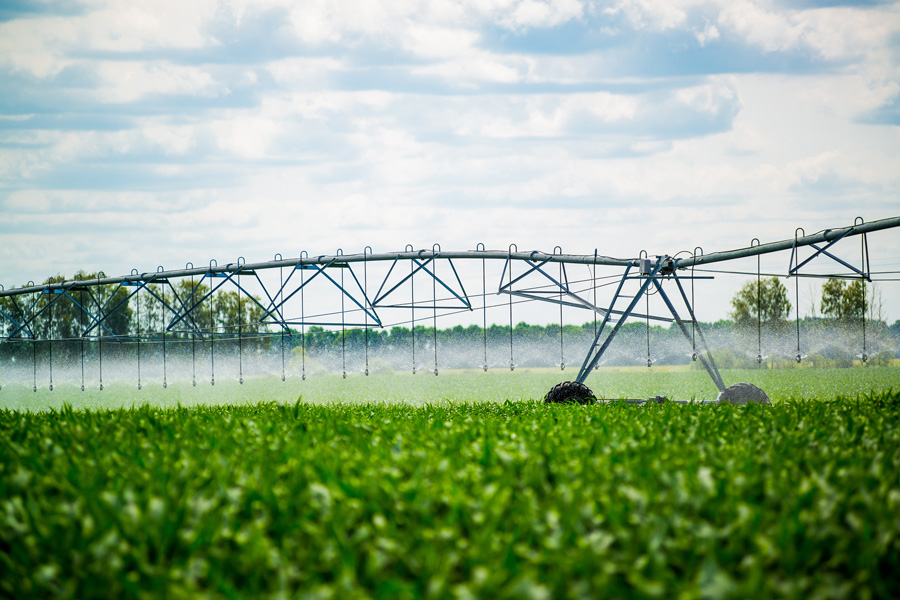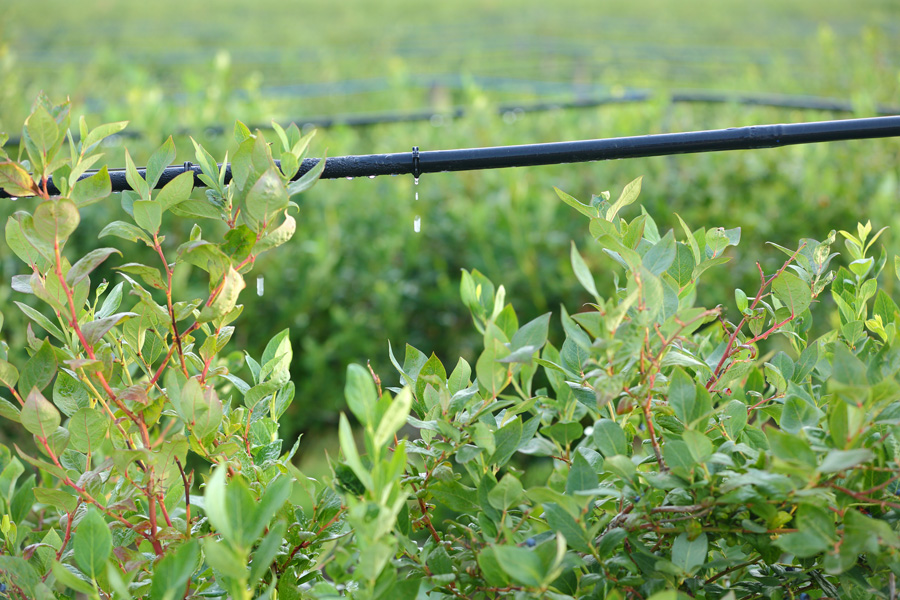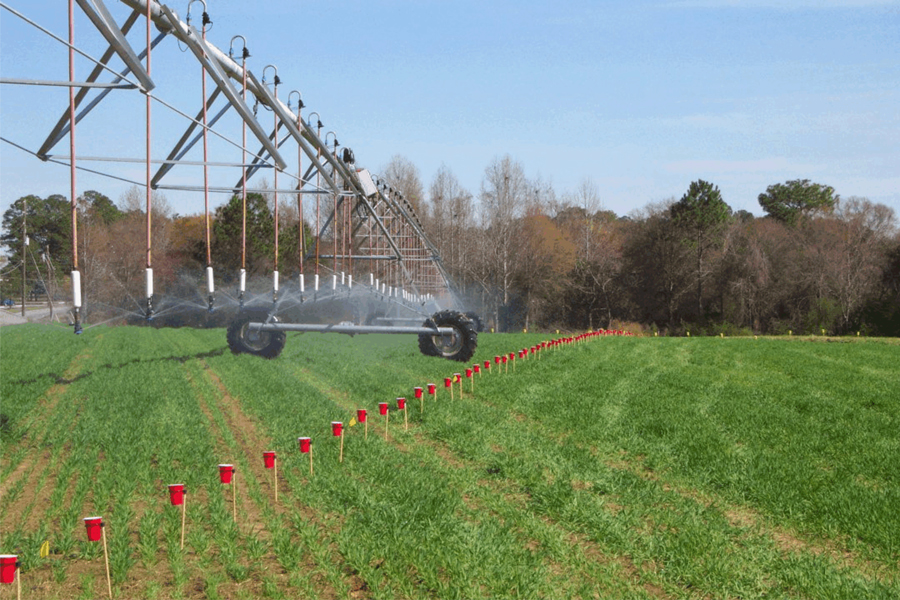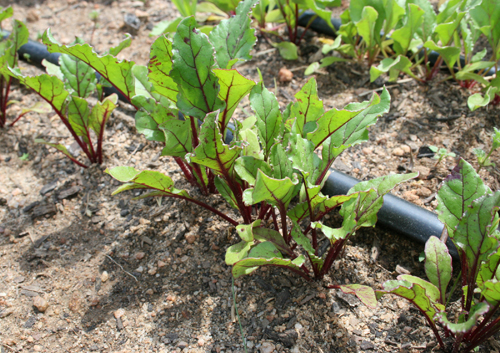Irrigation Resources
-

Learn about irrigation scheduling methods for commercial vegetable production in Georgia through this video resource.
Laurel Dunn, Andre Luiz Biscaia Ribeiro da Silva, and Govindaraj Dev Kumar
|
-

B 1298
Chemigation in Georgia
Chemigation is an inclusive term referring to the application of a chemical into or through an irrigation system. It includes the application of fertilizers, acids, chlorine and pesticides. Chemigation can save time, reduce labor requirements, and conserve energy and materials. Chemigation is beneficial, however, only to the extent that the irrigation system is adequately designed, fully functional and properly managed.
Kerry A. Harrison, Calvin D. Perry, Wesley Porter, Cale Cloud, and David Hall
|
-

With growing demands for potable (suitable for drinking) water (due to population increase) and expanding irrigated acreage, there is an increased pressure on irrigated farms to consider using nonpotable alternatives. However, low quality irrigation water can adversely affect soil physical conditions and crop production.
This publication provides in-depth information on the following aspects of agricultural irrigation water quality:
-Importance of irrigation water quality
-Major attributes of irrigation water quality
-Common units used
-Salts content
-Toxicity and their sources
-Bacteria in water sourcesGary L. Hawkins, Stephanie Butcher, Uttam K. Saha, Wesley Porter, and Jason Lessl
|
-

The main objective of this fact sheet is to provide a checklist of what is needed to properly prepare a center pivot or lateral irrigation system for the production season. All of the topics covered apply to both pivot and lateral irrigation systems, but for brevity, only center pivots will be referenced. By using the items in this fact sheet as a guideline for preventative maintenance, most breakdowns during the growing season should be avoided.
Phillip Edwards, Calvin D. Perry, Wesley Porter, Jason Mallard, and David Hall
|
-

This circular is a review of water quality standards, calculations, and recommendations for water that will be used for irrigation of blueberries.
Gary L. Hawkins, Uttam K. Saha, Wesley Porter, Zilfina Rubio Ames, and Glendon H. Harris
|
-

With rising fuel prices it is increasingly important that irrigation systems apply water uniformly in order to achieve maximum benefit from the water applied. The uniformity of water application under a center pivot is determined by setting out cans or rain gauges along the length of the pivot, bringing the irrigation system up to proper operating pressure, and letting the system pass over them.
Calvin D. Perry, Wesley Porter, Jason Mallard, and David Hall
|
-

Frost protection systems tremendously benefit commercial blueberry production in Georgia. These systems are expensive and usually configured as overhead irrigation systems. For the system to provide protection, it must operate as soon as it’s needed. The best practice for maintaining a frost protection system is to perform preventative maintenance service every late fall or early winter. This publication offers blueberry growers suggestions on how to prepare their frost protection systems for future operation. Recommendations include a check-off list for maintenance and inspection of overhead irrigation systems, important considerations when preparing for freeze events.
James L. Jacobs, Wesley Porter, Jason Mallard, and David Hall
|
-

This publication is designed to give small market growers, homeowners, and Master Gardener audiences a quick guide to selecting and installing drip irrigation in the vegetable garden.
Bob Westerfield
|
-

A farm’s return on investment is directly affected by the way water is applied to its crops. The wrong end-gun settings can result in overwatering or underwatering large portions of field acres. Clogged or partially clogged nozzles lead to obvious water shortages that can be visually observed or measured using yield monitors. Systems not properly checked and maintained can lead to significant losses in potential income. This irrigation reference guide will contain information provided by UGA Extension recommended irrigation scheduling rates for corn, cotton, peanuts and soybeans. The guide will also recognize specific center pivot application issues and how to correct them.
David Hall and Wesley Porter
|